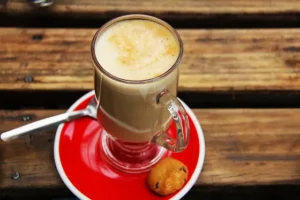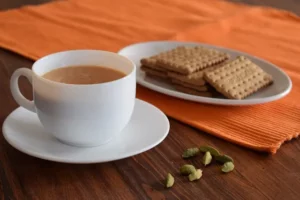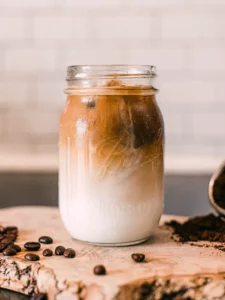Best Chai tea for weight loss

Best Chai tea for weight loss, Does drinking milk tea increase weight? Whether you gain weight or not by drinking milk tea depends on the ingredients used in the tea. There are no calories in tea. However, its antioxidants are beneficial for health. Some studies have shown that adding milk to tea can reduce its antioxidant content. And refined sugar doesn’t offer many health benefits other than calories. How much sugar you give, what kind of milk you use, and how many times a day you drink tea are all related to weight gain.
Milk tea on weight gain
The effect of milk tea on weight gain may vary from person to person. Factors such as age, heredity, physical activity, lifestyle and overall diet can have an effect. For example, younger people, who exercise regularly, are less able to burn calories from milk tea than older or elderly people, whose sedentary lifestyles lead to less physical activity. However, if you know the rules or techniques of drinking milk tea, you can be free from the fear of weight gain.
Rules for drinking milk tea
There are many types of milk available in the market, such as low-fat, toned milk, full cream milk powder, etc. Although the nutritional quality of these milks is the same, the amount of fat is different. So milk tea should be consumed without fat.
1st way
While making milk tea, the milk should be thin and the water should be more. In this milk will be easily digested, without gas or acidity.
Drink milk tea in moderation. Once to twice throughout the day. Because tea contains caffeine and milk contains various vitamins and minerals. Drinking too much tea can cause various problems in the body due to increased caffeine levels.

Instead of using refined sugar in milk tea, you can use stevia as a natural sugar, especially for those with diabetes. And those who do not have diabetes or have any physical complications, they can use a small amount of red sugar, jaggery, honey instead of sugar.
2nd way
Mixing ginger, cinnamon, cardamom in milk tea will improve metabolism and help burn fat, weight will be under control.
You can mix cocoa powder without sugar in milk tea. Cocoa powder is rich in phytonutrients, which suppress appetite and keep weight under control.
Milk tea contains theophylline, which can cause dehydration. This can lead to problems like constipation. For this drink water before drinking milk tea.
Third Way
Avoid drinking tea when you’re hungry. It has a high risk of peptic ulcer. Apart from this, drinking tea on an empty stomach can increase potassium levels and lead to kidney problems.
Do not drink tea at bedtime. It can cause hormonal imbalance. Insomnia can also be a problem.
Tea should not be consumed immediately after a heavy meal. It reduces the ability of the body to absorb iron, calcium, zinc. Wait at least 30 to 60 minutes after eating for this. Especially those with thyroid, diabetes or long-term physical problems should follow it.
Overheating milk tea releases more tannins, which are harmful to the body. So don’t overheat for a long time.
Condensed milk is very high in calories. So don’t use condensed milk.
How to make milk tea
Indulging in the art of crafting the perfect cup of milk tea is a delightful journey that promises a symphony of flavors. Begin by selecting high-quality loose tea leaves or tea bags, ensuring they complement your taste preferences. The foundation of an exceptional milk tea lies in the brewing process – allow the tea to steep in hot water for the optimal duration, releasing its essence. While the tea leaves work their magic, focus on the milk component. Whole milk or condensed milk brings a creamy richness, but the choice is yours.
Balance
Experimentation is key, so don’t shy away from adjusting ratios to achieve your desired balance. A dash of sweetness is the finishing touch; whether its honey, sugar, or a unique sweetener, let it dance on your taste buds. The key to mastering the art of milk tea is patience and personalization – tailor each element to your liking, and soon you’ll be savoring a cup that transcends the ordinary, a testament to your own tea-making alchemy.
Milk tea benefits
Indulging in a comforting cup of milk tea isn’t just a delightful experience for your taste buds; it also brings forth a myriad of health benefits. Packed with antioxidants, milk tea is known to boost the immune system and protect the body from harmful free radicals. The combination of tea and milk provides a rich source of essential nutrients like calcium and vitamin D, promoting strong bones and teeth.
Tea offers
Additionally, the moderate caffeine content in tea offers a gentle energy boost without the jitters associated with other caffeinated beverages. For those seeking a natural remedy to stress, the presence of L-theanine in tea helps promote relaxation and reduce anxiety. Beyond its physiological advantages, the ritual of enjoying a warm cup of milk tea can serve as a moment of tranquility in a fast-paced world, allowing for mindfulness and rejuvenation. So, next time you savor the velvety goodness of milk tea, relish not only in its exquisite taste but also in the wholesome benefits it brings to your well-being.
Boba milk tea
The rich tapestry of flavors that is boba milk tea, a delightful concoction that transcends cultural boundaries. Originating from Taiwan, this global sensation has taken the beverage world by storm, captivating taste buds with its unique blend of tea, milk, and chewy tapioca pearls. The magic begins with a base of carefully brewed tea, often black or green, which forms the aromatic foundation of this velvety elixir. The addition of milk lends a creamy texture, transforming each sip into a silky embrace for your palate.
Boba itself
Yet, the true star of the show is the boba itself—pearls of tapioca, prepared to perfection with a tender exterior and a satisfyingly chewy interior. These delectable orbs, nestled at the bottom of the cup, elevate the experience to a delightful dance of contrasting textures. As you savor the sweet symphony of flavors, it’s impossible to ignore the whimsical charm of these tapioca treasures.
Boba Milk
Boba milk tea has become more than just a beverage; it’s a cultural phenomenon, a symbol of shared moments and communal joy. From bustling urban centers to quaint tea shops, the popularity of boba transcends age and background, uniting diverse communities in a shared love for this liquid masterpiece. So, whether you’re a seasoned boba enthusiast or a curious newcomer, dive into the world of boba milk tea—a symphony of taste and texture that promises an unforgettable journey for your taste buds.
How to make boba tea
Creating the perfect boba tea at home is a delightful journey that combines simplicity with creativity. Start by brewing your favorite tea—whether it’s black, green, or fruit-infused, the choice is yours. Allow the tea to cool to room temperature before adding the key ingredient: tapioca pearls. Boil these pearls until they achieve a chewy consistency, then let them cool.
Hot water
Meanwhile, prepare a simple syrup by dissolving sugar in hot water, adjusting sweetness to taste. Once everything is ready, assemble your boba tea by adding the pearls to a glass, pouring in the brewed tea, and finishing with ice and your desired amount of syrup. Shake or stir the concoction gently to ensure all elements meld harmoniously. Top it off with a splash of milk or a dairy-free alternative for a creamy finish. The result is a refreshing and customizable boba tea that rivals your favorite bubble tea shop’s offerings, right in the comfort of your own home. Cheers to your newfound expertise in crafting this trendy beverage!
How to make fruit bubble tea
Savoring the refreshing burst of flavor in a homemade fruit bubble tea is a delightful experience that transcends the ordinary. Crafting this delectable beverage is an art form, and it all begins with selecting the freshest fruits. Whether you opt for succulent strawberries, juicy mangoes, or tangy passion fruit, the key lies in their ripeness. Once chosen, these vibrant fruits are blended to perfection, creating a luscious puree that forms the heart of your bubble tea. Next, select your tea base, be it classic black, green, or an herbal infusion, ensuring a harmonious marriage of flavors.
Introduce the iconic tapioca
The magic happens when you introduce the iconic tapioca pearls, transforming your drink into a textural symphony. Boil them to chewy perfection and let them cool before adding them to your concoction. Finish off your masterpiece with a generous scoop of ice and a splash of sweetened condensed milk, adjusting to your preferred level of sweetness. Voilà! Your homemade fruit bubble tea is ready to be enjoyed—a tantalizing fusion of fruity freshness, tea elegance, and the playful pop of tapioca pearls. Elevate your tea-sipping experience with this personalized creation that promises to delight the senses in every sip.

Milk tea benefits and side effects
Milk tea is a beloved ritual for many, offering not only a delightful taste but also a myriad of potential health benefits. Rich in antioxidants, milk tea has the power to boost the immune system and protect the body against harmful free radicals. Additionally, the combination of tea and milk provides a source of essential nutrients such as calcium and vitamin D, promoting strong bones and a healthy metabolism.
Beverage in moderation
However, it’s crucial to enjoy this beverage in moderation, as excessive consumption may lead to unwanted side effects. The caffeine content in tea can cause insomnia and restlessness, while the sugar often found in sweetened versions may contribute to weight gain and dental issues. Striking a balance and savoring the goodness of milk tea responsibly allows enthusiasts to relish its advantages while minimizing potential drawbacks.
Final Thoughts:
In conclusion, the journey towards weight loss is often accompanied by various lifestyle changes, and choosing the right beverages can play a pivotal role in achieving your goals. When it comes to finding the best chai tea for weight loss, it’s essential to focus on natural ingredients and their potential benefits.
In our exploration, we’ve uncovered some noteworthy contenders in the realm of chai teas that may support weight loss efforts. From metabolism-boosting spices like cinnamon and ginger to antioxidant-rich ingredients such as green tea, these blends offer a flavorful and potentially beneficial addition to your wellness routine.
It’s important to note that while chai tea can be a delightful and health-conscious choice, it is not a magic solution for weight loss. Pairing it with a balanced diet, regular exercise, and an overall healthy lifestyle is key to achieving sustainable results.
In your quest for the perfect chai tea, consider experimenting with different blends and finding the one that suits your taste preferences. Whether you opt for a traditional masala chai or a herbal infusion, savoring each cup mindfully can enhance the overall experience of your weight loss journey.
Remember
Individual responses to teas and herbs can vary, so it’s advisable to consult with a healthcare professional or nutritionist before making significant changes to your diet. Embrace the diverse world of chai teas, appreciate the journey towards wellness, and make choices that align with your unique needs and preferences.
In the end, the best chai tea for weight loss is not just about shedding pounds but also about fostering a holistic approach to health and well-being. Cheers to drinking your way to better health and happiness!







